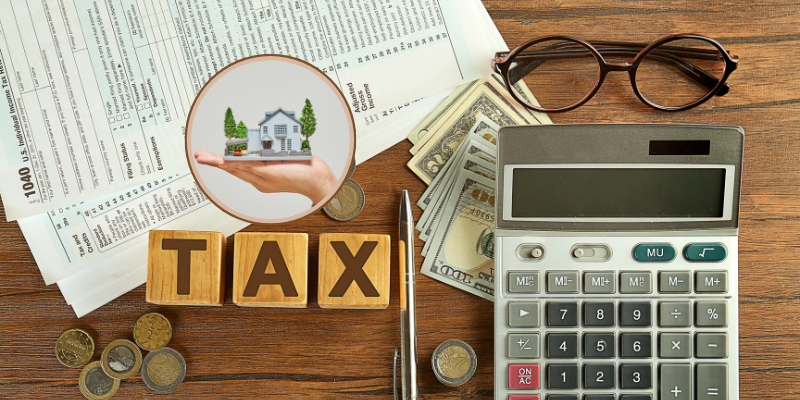
Property taxes in Irving, TX can be hard to understand if you don’t have all the facts. But every property owner needs to understand how these tax rates work if they want to save money and plan for future costs. This guide tells you everything you need to know about Irving’s property tax system, such as how tax rates are set, what changes them, and how state and local rules affect them. If you know how property taxes work, you can make better decisions and plan for your financial future. This is true whether you’re buying your first home or taking care of a lot of them.
Key Highlights
- The Texas property tax system is very important since it pays for schools, local governments, and other public services. There are a lot of things that go into the final rates.
- In all of its areas, Dallas County is in charge of making rules, giving tests, and collecting taxes.
- Many tax bills are sent out by Local Independent School Districts (ISDs), such as Irving ISD. This is because schools and their infrastructure are paid for by property taxes.
- Homeowners could ask about the value of their home to make sure they are paying the right amount of taxes and not too much.
- You can lower your property taxes in Irving by using exemptions and county services.
How the Texas Property Tax System Works
People who own land in Texas should know how the state’s property tax system works. The state of Texas does not collect property taxes. Instead, local governments do. These taxes pay for important things like schools, police, fire departments, and more. Irving makes a lot of money from property taxes. This part talks about how Dallas County and local school districts affect the tax rates that homeowners pay and what makes those rates change from year to year.
The County’s Part in Property Taxes
Counties in Texas, like Dallas County, are in charge of the property tax system. Homeowners should realize that the county doesn’t just establish rates; it also watches the whole process that decides how much you owe. Dallas County sets the rules for assessments, collects taxes, and changes tax rates as needed to keep the budget in check.
The Dallas Central Appraisal District (DCAD) is the group that decides how much property in Irving is worth. The district sets the tax rate depending on what the property is worth on the open market. Your tax bill could go up even if the rate stays the same if the value of your property goes up because of market trends or renovations to houses in your area. That’s why a lot of people who own homes read their assessment notices so carefully every year. Sometimes, the values are higher than what they thought they would be.
The Dallas County tax office also has programs to help persons who meet certain requirements. For example, senior homeowners and people with disabilities might be able to get partial tax refunds or have their payments put off. This would make the system more equitable. These programs are an attempt by the county to achieve a balance between being careful with money and supporting people who are experiencing difficulties with their finances.
Dallas County looks at its tax structures from time to time, in addition to routine reviews, when laws change or the economy as a whole changes. Tax rates may also change when property prices or county budgets change. This is why those who own homes in Irving should pay attention to what the county and city are saying about changing the tax rate. Changes in the percentage, even little ones, could change how much you pay each year, especially if your home is worth more.
Homeowners who understand what the county does are better equipped to plan for changes and participate in community discussions that shape local fiscal policies. Staying informed about county news also helps you stay on top of your long-term finances — and if you ever need to sell your house fast in Irving, being aware of local developments can give you a clear advantage.
How Your Local ISD Affects Your Taxes

In Texas, Independent School Districts (ISDs) are a big element of how much property tax you owe. The same goes for Irving ISD. Property taxes give a lot of money to local schools. They pay for everything, from teacher salaries to classroom supplies to building improvements to after-school programs.
Each ISD sets its own property tax rate, which is added to the total amount of taxes you owe each year. Property owners are indirectly assisting their community’s schools by paying these taxes.
When school districts want to do big things, like replace broken buildings or buy new equipment, they occasionally hold bond elections. If voters say yes, the bonds will raise the local tax rate to cover the higher costs. What this implies is that homeowners need to be involved and know what their ISD is going to be. Supporting great education is important, but knowing how these choices will influence your property taxes will help you plan your budget.
ISDs also have to obey the Texas Education Agency’s (TEA) rules about money. The TEA keeps an eye on things to make sure that local tax money is spent correctly and that districts are honest about what they do. People feel better about how their tax money is being used because of this.
Homeowners will understand how their payments benefit the community immediately away if they know how property taxes affect school funding. It also shows how important it is to be up-to-date on and interested in local education problems, since those choices will have an effect on the quality of schools and the value of homes in the future.
Looking into Irving’s one-of-a-kind tax system
Irving’s taxes are affected by the city’s goals, Dallas County rules, and Texas property laws. If you own a house, you need to understand how this system works if you want to precisely figure out how much you will owe in taxes and how to lower that amount. Let’s take a closer look at how the tax rates in different counties are different and how the state’s property limits affect the people who live there.
The Tax Rates in Different Counties Are Very Different
Property tax rates differ not only from state to state, but also from county to county. Dallas County is a great example of how hard it may be to tell the difference between these things. Residents of Irving have to pay property taxes that are set by the city, county, school district, and special district. Each of these groups uses its portion of tax money to pay for different public services, making sure that there is adequate money for safety, infrastructure, and education.
The Dallas Central Appraisal District looks at the prices of properties over and over again. Based on these values, the city and county determine fees. The county’s budget shows how much money it will need to spend on services and public works in the future. This means that its charges can change a lot from one year to the next to meet new needs. Some counties levy a set amount for property taxes, but Dallas County’s technique is more flexible because it changes dependent on how the economy and the market are doing at the time.
These diverse tax rates also show that different places have different goals. For instance, counties that want to grow quickly could maintain taxes low to entice businesses to move there. On the other side, older cities like Dallas County have reasonable tax rates and good support for public infrastructure and education.
It’s important for homeowners in Irving to keep up with county news, especially about public hearings and changes to the budget. People sometimes talk about modifications to the planned tax rate at these gatherings. This gives people a chance to voice their opinions before the final tariffs are set.
In the end, knowing these differences between counties helps people in Irving understand what they’re paying for and why. It also helps people make better budgets and understand how local tax laws affect the growth of their community and how easy it is to live there.
How Texas Property Laws Affect People Who Own Homes

Texas property laws decide how taxes are calculated and collected, and they have a direct effect on people who live in Irving. Because Texas doesn’t have an income tax, property taxes are the state’s main source of revenue. This is the most important thing to know about Texas legislation. This means that local property taxes are even more critical for keeping important public services running.
The homestead exemption is one of the best ways for homeowners to defend their rights. This rule lets homeowners lower the taxable value of their main house, which means they don’t have to pay as much in taxes. Texas has more than just a simple homestead exemption. It also helps soldiers, retirees, and those with disabilities in particular ways. The goal of all of these programs is to help those who are having trouble with their money stay in their houses.
The limit on how much the value can go up each year is another vital legal protection. Texas law says that the appraised value of a homestead can’t go up by more than 10% a year, no matter how much prices go up on the market. This cap helps homeowners avoid sudden, significant tax spikes in hot real estate markets, which makes it easier to plan for the future.
Texas property laws also let homeowners put off or freeze their property taxes in some instances, as when they are old or disabled. These steps assist make sure that no one has to sell their property because taxes are going higher.
Texas law focuses on striking a balance between the needs of the state and the rights of property owners. It allows counties like Dallas to adjust fees based on local community needs while maintaining fairness. By understanding these regulations, homeowners in Irving may discover opportunities to reduce costs through exemptions or appeals. At the same time, we buy houses in Texas, offering homeowners a quick and stress-free option if they’re looking to sell amid these changing rules.
How to Avoid Paying Property Taxes in Irving
People who own homes in Irving should realize that property assessments are the most important part of the tax process. The Dallas Central Appraisal District establishes these values, which tell you how much tax you owe each year. If you know how evaluations work and how to fight them if you need to, you might save a lot of money over time.
How to Dispute the Value of Your Home
You have every right to question the value of your property if you think it is too high. The first thing you should do is read the appraisal notice. It will tell you how much your home is worth on the open market. You might have a justification to file an appeal if this amount is a lot more than what similar properties in your region are selling for.
The first step is to get proof. Check out the prices of homes that are similar to yours that have sold recently. Make a list of any differences in size or condition, as well as any problems that could affect the value of your home, including repairs that need to be made or features that aren’t functional anymore. Homeowners can also employ a separate appraiser to give them a professional opinion. This could be expensive, but it could help your case.
Once you have all the facts you need, you have to file a protest with the Dallas Central Assessment District by the date on your assessment notice, which is usually in mid-May. After that, you’ll get a date for a hearing with the Appraisal Review Board (ARB), where you can make your case.
Be clear, brief, and professional at the hearing. Explain clearly why the county’s assessment doesn’t indicate what your property is really worth on the market. If the ARB agrees with your case, the value of your property as assessed can go down. This also means that your tax bill will go down.
If you don’t agree with the ARB’s judgment, Texas law lets you appeal it in numerous ways. You could, for instance, go to district court or binding arbitration. These stages could take longer and require a lawyer, but they can be worth it for big improvements.
When you challenge the value of a property, you’re not only trying to pay less in taxes; you’re also trying to make sure the system is fair and right. Being proactive every year helps you avoid paying too much and provides you a better idea of how the market affects the value of your house.
How to Handle Your Tax Bill Wisely
You can handle property taxes better if you plan ahead and pay attention, even if they can be very expensive every year. There are several techniques to make sure you don’t pay more than you have to, such using exclusions and making smart budgets.
How to Lower Your Property Taxes

Taking advantage of all the exemptions you can is the best method to minimize your property taxes. The first thing you need to do is get the homestead exemption. It lowers the value of the property you own that is taxed. Then see if you can get more exemptions. For example, if you are a veteran, disabled, or over 65, you may be able to get more discounts.
Contact the Dallas County Tax Office regularly. They provide workshops on a regular basis to teach individuals about new laws or programs that effect property taxes, and they also have online tools to assist people learn about them. How you handle your money can be greatly affected by staying up to date.
Another helpful thing to do is to use property tax calculators that are available online. Using these tools, you may find out how much you’ll owe in taxes each year based on the most recent rates. If you know this ahead of time, you can change how much you save or place in escrow during the year.
You shouldn’t be afraid to appeal if you think your property is worth more than it truly is. Even a slight drop in your assessed value can save you a lot of money. Also, keeping an eye on ISD bond initiatives or tax proposals during elections will help you realize how the choices your community makes now might affect your taxes in the future.
Finally, think about how your mortgage deals with property taxes. If your lender collects taxes through escrow payments, check to see that the amount they are keeping is the same as the most recent tax estimations. This can help you avoid bad shocks at the end of the year.
By doing these things ahead of time, you may make paying your property taxes a well-organized part of your budget instead of a stressful chore.
How to Find Out the Property Tax Rate in Irving, Texas
If you want to be a responsible homeowner in Irving, it’s important to understand the local property tax rate. By staying informed about rate changes, accurately assessing your property’s value, and taking advantage of all eligible exemptions, you can reduce your tax burden while staying compliant with local regulations. Property taxes aren’t just another bill — they help fund vital community services like schools, roads, and public safety. Staying up to date ensures you’re contributing fairly and getting the most value for your money. And if managing property taxes or other ownership challenges becomes overwhelming, Texas Cash House Buyer buys houses cash in any situation, offering a quick and hassle-free solution for homeowners. Contact us today to learn how we can help you move forward with confidence.
FAQs
What things affect the amount of property tax in Irving, Texas?
The Dallas County and Irving ISD decide how much money is required for schools, roads, and other public services. These choices, as well as the state of the market and the value of residences in Irving, determine property tax rates.
How do those who own homes in Irving pay their exorbitant property taxes?
If you don’t agree with your home’s value, you can contest it by looking over your appraisal notices, comparing them to the values of similar homes, and writing a letter of protest. If you give images, recent sales data, or an independent appraisal, your argument will be stronger.
What kinds of tax breaks can you get in Irving to lower your property tax bill?
There is a general homestead exemption that is common, but there are also extra ones for veterans, seniors, and those with disabilities. Every exemption decreases the value of your home for tax purposes, which lowers the total cost.
What effect does the Independent School District (ISD) in Irving have on property taxes?
Irving ISD uses property taxes to pay for its staff, operations, and educational initiatives. The district sets its tax rate every year, and that amount is included in your total property tax bill.
What part does Dallas County play in collecting property taxes in Irving, Texas?
Dallas County is in charge of collecting taxes, setting tax rates, and finding out how much property is worth. It makes sure that money is fairly given to important county services including schools, roads, public safety, and others.
Helpful Irving Blog Articles

